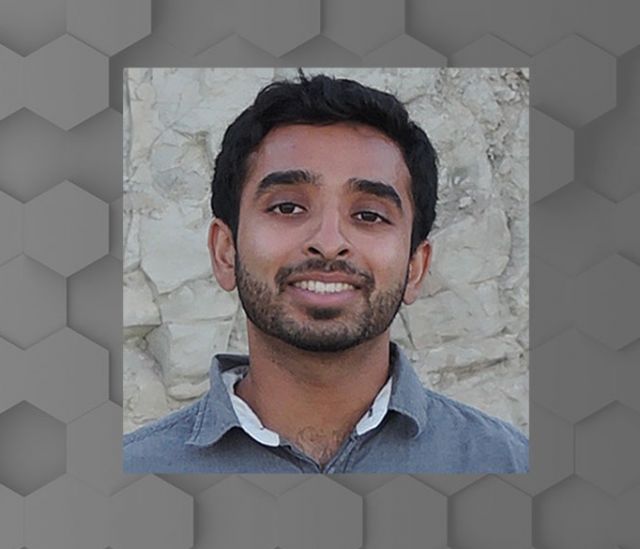Shankar – GSA Excellence in Teaching
The UCSB Graduate Student Association (GSA) honors PhD student Sharad Shankar for his work with undergraduate students in the classroom

From the CoE News article "Above and Beyond"
Sharad Shankar, an electrical and computer engineering (ECE) graduate student at UC Santa Barbara, has been recognized for his dedication and work with undergraduate students. The sixth-year PhD student is one of eleven graduate students selected from a pool of more than two hundred who were nominated to receive a 2022 Excellence in Teaching Award from UCSB’s Graduate Student Association (GSA). The award recognizes graduate students who have shown excellence and gone above and beyond as teachers at UCSB.
"The award is validating for the amount of effort I put into my teaching, and it’s especially meaningful to receive the commendation from my peers who know how difficult it is to be a graduate student," said Shankar, who received a bachelor's degree in electrical engineering and minored in mathematics at UCLA. "I am also thankful for the amount of support and training I received at UCSB, because it helped me become a better teacher."
Advised by João Hespanha, a distinguished professor in the ECE Department, Shankar works on state estimation, a key factor of navigation and control problems, in which measurements from an array of sensors are combined to reconstruct knowledge about the system that can then be used for feedback. For example, aircraft autopilot algorithms use information from sensors including the global positioning system (GPS), accelerometers, gyroscopes, cameras, and tilt sensors.
“Each sensor on its own provides only a small piece of the picture of whether the aircraft is flying safely in the correct direction and, furthermore, tend to be very noisy or difficult to calibrate,” he explains. “However, by carefully combining these separate and unreliable pieces of information along with or pre-existing knowledge about the plane’s dynamics, we can actually get an incredibly accurate estimate of the plane’s position, velocity, and orientation for the flight controller to use.”
In addition to his work in the lab, Shankar has served as a teaching assistant and a teaching associate, or the instructor of record, for multiple undergraduate courses. A team of undergraduate students whom Shankar mentored also won first place in the 2018 Powerful Engagement and Learning in Naval Engineering and Science (PIPELINES) Design Challenge. He supported the team during the eight-week program, during which student teams competed to find the most innovative and effective design solutions to real-world naval engineering and science design projects. Shankar says that his approach to teaching is to nurture understanding and promote student participation and collaboration.
"I know the limits of lecturing or enforcing procedures, and so I try to find ways that students can be more active and creative in their learning," he said, adding that he might, for instance, incorporate group problem solving in a lecture or let students attempt an experiment and potentially make mistakes before discussing what they could improve upon the next time. “When combined with a welcoming and non-judgmental classroom environment, I think that these simple techniques can have a positive effect on learning and student morale.”
Shankar says that he is grateful for the GSA recognition and wants to share his experience to let other graduate students know that the effort they put into their teaching is worthwhile.
“The moment when a student grasps a concept that they had no idea about and little context for just a few hours before is always gratifying,” he said. “It is also really wonderful to work with our undergraduates, because they are extremely thoughtful, inquisitive, and motivated.”
Shankar has accepted a position as a navigation systems analyst for The Aerospace Corporation in Southern California. He looks forward to working with students again to pay forward the opportunities he has had and inspire the next generation of engineers and scientists.
The GSA will honor this year’s recipients during a virtual ceremony on May 31.